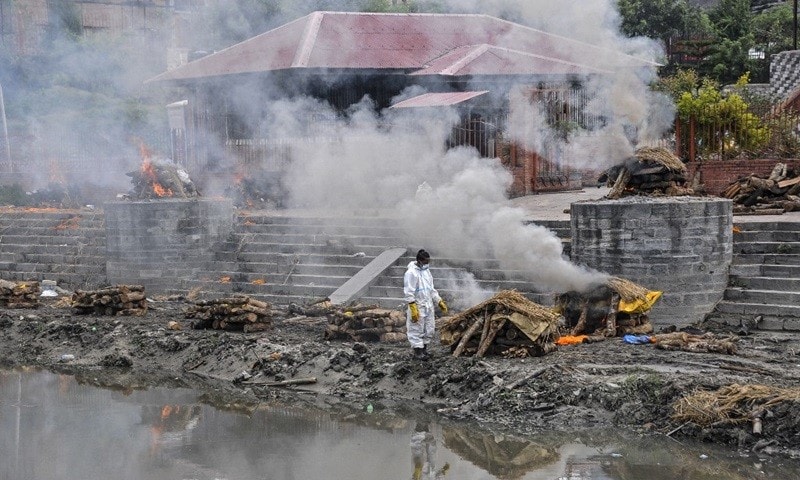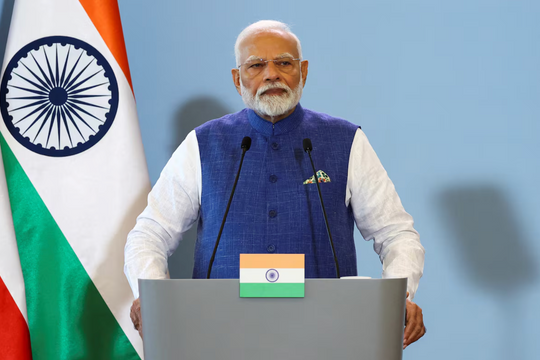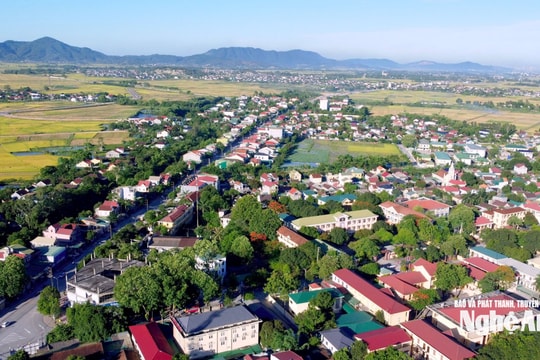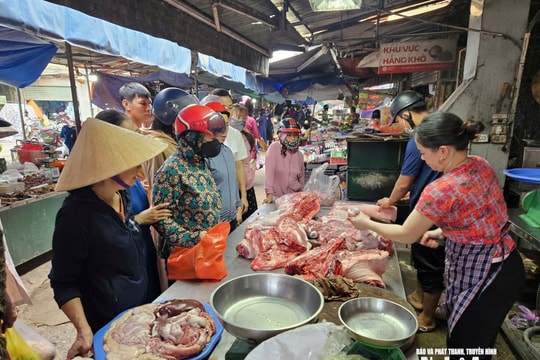Indians bring 'hell on earth' to Nepal
Thousands of Indian workers flee the country turning neighboring Nepal into the next hell on earth as Covid-19 cases spike.
 |
| A man wearing protective gear stands amid a fire that cremates victims of Covid-19 on the banks of the Bagmati River in Kathmandu, Nepal on May 7. Photo:AFP |
Efforts to contain India’s worsening Covid-19 crisis have failed, with the country still recording around 400,000 new cases a day. Now everyone from the middle class to migrant workers are fleeing the country as quickly as possible.
A few weeks ago, business tycoons, film stars, fashionistas hired private planes to leave India. These planes are now being chartered by middle class people who are spending their savings to save their lives.
Kanika Tekriwal, CEO of private jet charter company JetSetGo, says the company has seen a 900% increase in bookings, but these are not typical customers.
“It would be wrong to say that only rich Indians are leaving the country on private planes,” Tekriwal said on May 6 from his safe haven in the Maldives. “In the last 10 days, what we have really seen is anyone who can muster the resources and means to raise money to hire a private plane, or raise money just to leave the country.”
The most popular destinations are the Maldives, where an eight-seater plane with a pilot costs around $20,000, and Dubai, in the United Arab Emirates (UAE), where a six-seater with a pilot costs a whopping $31,000. These are two of the last countries to allow Indian passengers to enter, provided they test negative for the coronavirus before departure.
But those without savings are spreading the deadly virus to neighboring countries. Thousands of migrant workers fleeing India have turned neighboring Nepal into the next hell on earth. Some experts predict the situation in Nepal could be worse than India, and Prime Minister KP Sharma Oli is being criticized for his mishandling of the pandemic, like Indian Prime Minister Narendra Modi.
The capital Kathmandu is currently under strict lockdown, but concerns are growing that the border town of Nepalgunj, where thousands of migrant workers have returned from India, could see a spike in cases. The city has only about a dozen intensive care beds and most of its medical supplies come from India, so it could soon face shortages.
The positivity rate among those tested in Nepal is creeping closer to 50%, almost exactly the trajectory India experienced two weeks ago. But with a health care system that is not even remotely prepared, with 0.7 doctors per 100,000 people, fewer than almost anywhere else in the world, many experts fear Nepal’s crisis could be even more dangerous than India’s. Nepal, one of the world’s poorest countries, has just 1,595 intensive care beds and 480 ventilators for its entire population of 30 million.
"What is happening in India is a horrifying picture of Nepal's future if we cannot contain the latest Covid-19 outbreak that is claiming more and more lives," said Netra Prasad Timsina, head of the Nepal Red Cross Society.
Like India, the Nepalese government has allowed mass gatherings and opposed the lockdown, and has been criticized for opening Mount Everest to tourists. There have been reports of an outbreak at the base camp, with some climbers posting on social media that they tested positive for the virus, despite the government’s denials. Polish climber Pawel Michalski said on Facebook that 30 people had been evacuated from the base camp after contracting the virus.
Many Nepalese citizens, including the former king and queen, contracted the virus while attending a bathing festival in the Ganges River with thousands of others. Nepal’s own religious festival was allowed to continue in early April, despite a surge in cases and the crisis in neighboring India. Many blame the prime minister for catering to voters rather than protecting them.
Prime Minister Oli has proposed several solutions to combat the epidemic, including gargling with guava leaves, which many people have followed.
Back in India, the situation has worsened with new cases and profiteers. Police on May 7 discovered 100 oxygen concentrators during raids on restaurants and bars linked to fugitive black market tycoon Navneet Kalra. The raids were carried out after receiving reports of people queuing outside the establishments and leaving with bags that appeared to contain no food.
Police also found items in high demand, including N-95 masks imported from China and sold at inflated prices in the capital New Delhi. Police seized more than 500 medical devices.





.jpeg)

